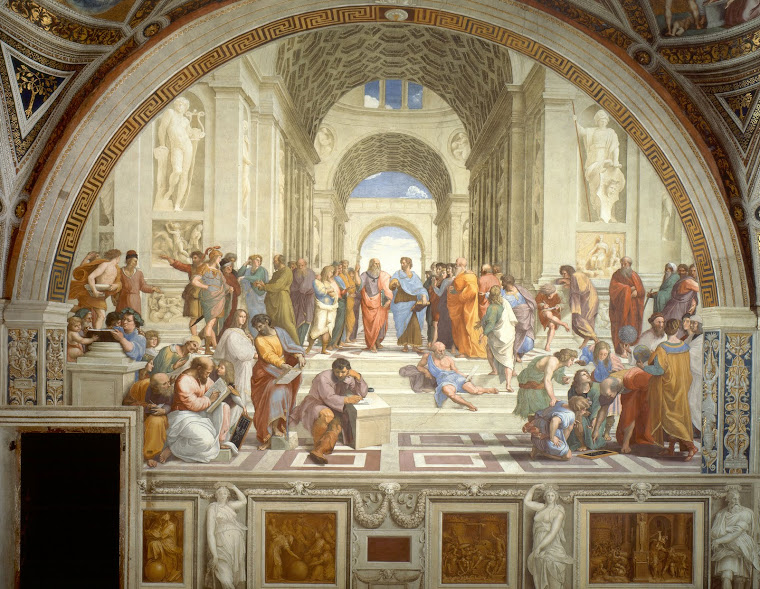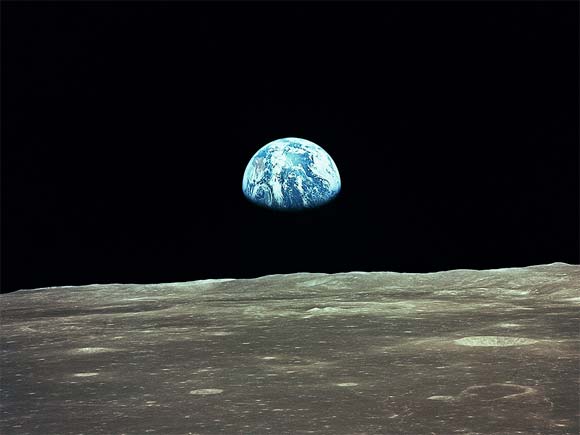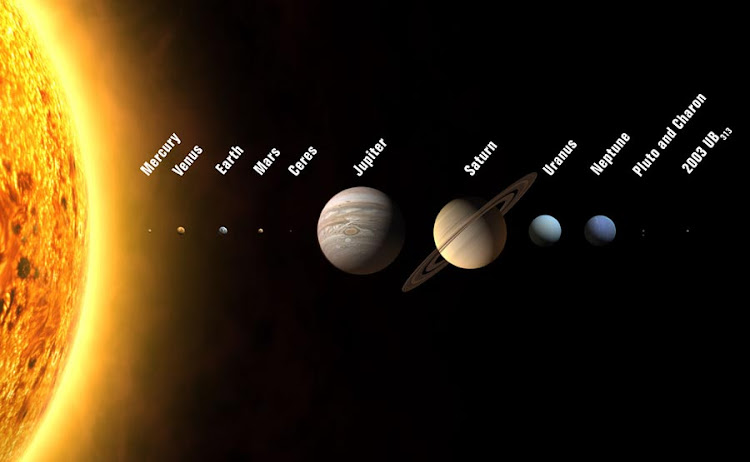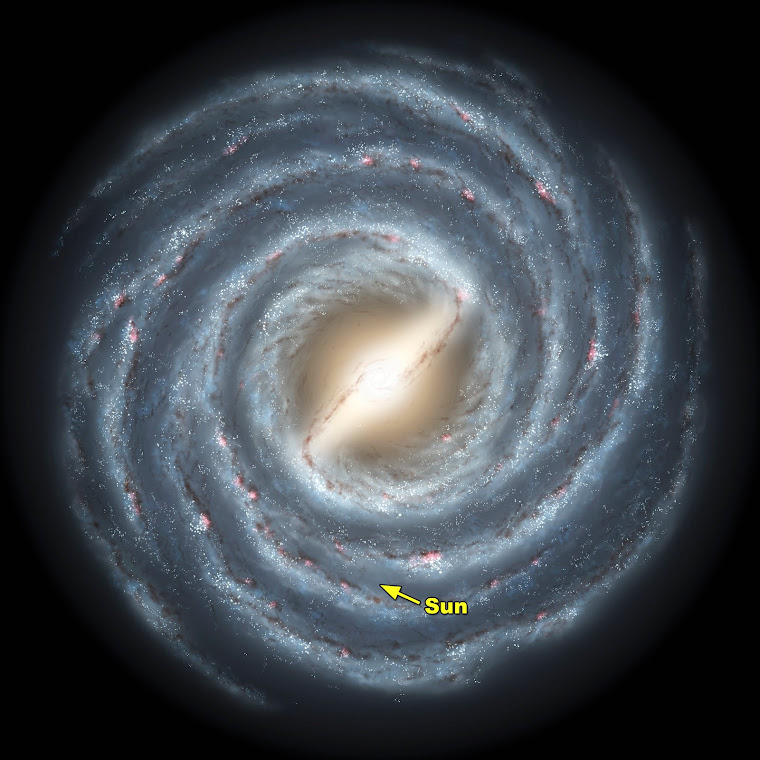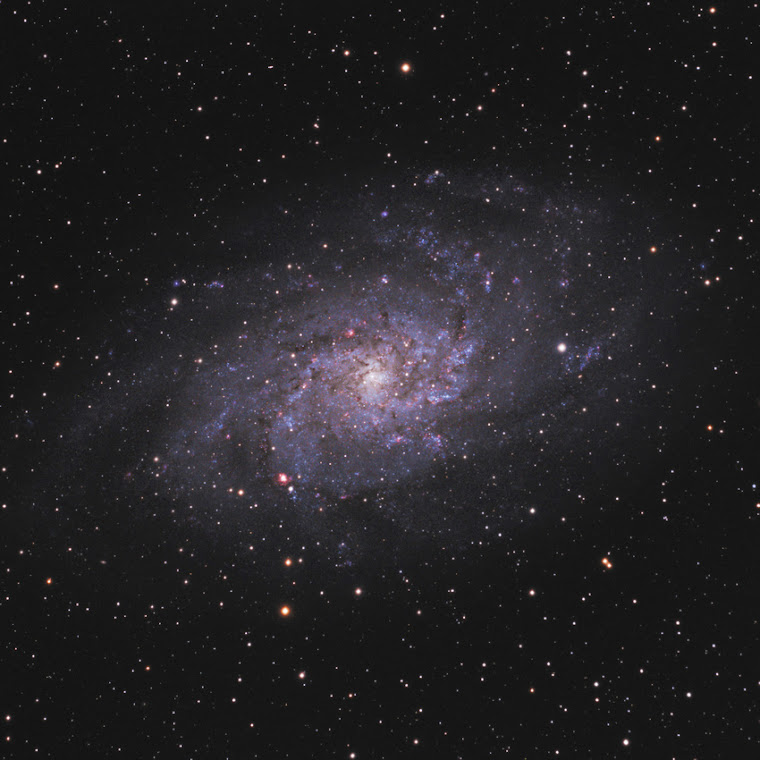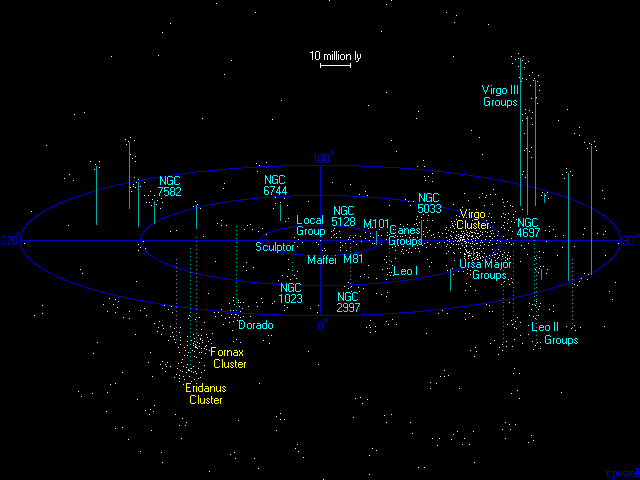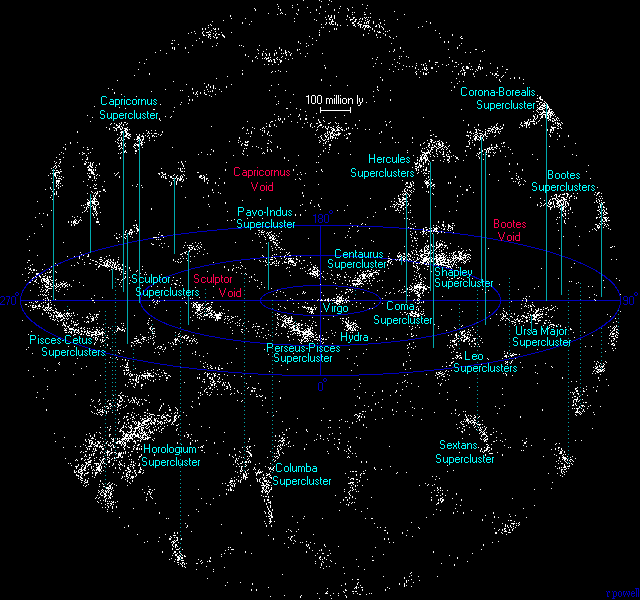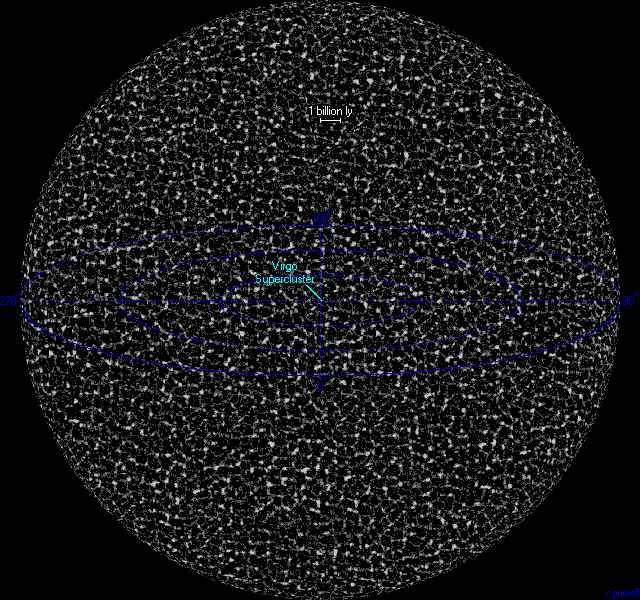Fellow citizens,
Let me state quite clearly: There will be no meaningful action undertaken in Australia on climate change, not now, not ever.
Why?
Because the Australian public does not want to see any.
This was obvious following the first Newspoll in January 2020 which showed that the public had not politically 'punished' the Morrison Government for its lack of action on climate change.
Despite much of the east coast of Australia from Queensland to Victoria having been incinerated and the resultant smoke nearly asphyxiating the populations of our largest cities for days and weeks, the public refused to draw the link between that catastrophe and climate change - and by extension, the Morrison Government, which is the greatest impediment to taking meaningful action.


I would have written this piece six weeks ago when that first Newspoll was released, however, I was pre-occupied, as our home was under threat from the fires.
On three separate occasions, over several weeks, our home was threatened; with the fires on one occasion coming to within 200 metres of our property and forcing us to evacuate to escape the inferno.
Thankfully, we were spared the worst of the flames and while much of the surrounding bushland was blackened and destroyed, our home remained intact. Many of our neighbours were not so lucky.
I had thought, quite incorrectly, that if such a dramatic event were to have occurred, that the Australian public would have had a conversion on the Road to Damascus and been jolted out of its collective torpor to actually demand action on climate change.
But what have they done? Nothing. Diddly squat. Bugger all.
The easiest way to place pressure on politicians is to cane them in the opinion polls. There's no 'risk' of a change of government, it's just a clear and unequivocal message that the public is unhappy and wants action.
But they couldn't even be bothered to do that.
A limp 51/49 two party preferred lead to the ALP and a mild drop in Scott Morrison's approval ratings was the extent of it.
Morrison could see this, Anthony Albanese could see this, and both their subsequent behaviours illustrated this understanding.
Morrison knew he had to do Sweet Fanny Adams and Albanese wasn't going to go out on a limb.

These polling results of a few weeks back were the portent for the Newspoll this week which showed that 56% of Australians blamed a lack of hazard reduction burns for the severity of the fires and only 35% believed it to be the result of climate change.
The delusion is complete.

So, why is it so?
Quite simple. It's mass denial.
It's far too confronting for the adults of Australia to accept that it is their apathy, complacency, ignorance and negligence that is directly causing their children and grandchildren to have a bleak future - if one at all - and so the easiest thing to do is to blame someone else.
It must be someone else, something else, anything else, except us. Not us. No way.
It's the same phenomenon that German people displayed in the 1930s when they saw Nazi thugs beating up Jews in the streets and saying, "If only the Fuhrer knew."
Or in Soviet Russia at around the same time, when people saw citizens dragged off to gulags saying, "Stalin must be told of this."
In both cases refusing to accept that it was their respective beloved leaders, in whom they were totally enamoured, who were issuing these orders...but that was too confronting, so there must be some other explanation, any other explanation.


And so the delusion, which was there before this summer, becomes entrenched.
The Morrison Government and its enablers in the Murdoch Press are a disgrace on this issue, that is true.
However, in the end, at some point, the adults of Australia have to take responsibility for their own negligence.
It is no accident that it is the children, seeing the intransigence of their parents, who are taking to the streets and demanding action.
To them, sadly, I can offer little hope, as I witness the same old, same old, denial behaviour in the adults.
The best I can do is to quote for them from Terence Rattigan's play The Deep Blue Sea: "To live without hope can mean to live without despair."
Small comfort, I know.
And for their parents and grandparents? From some other slightly better known playwright:
Fellow citizens...of the Earth and beyond...
Unsurprisingly, there has been much debate surrounding the recent fires in Australia and how such devastation is the result of human induced climate change.
Unsurprisingly, yet again, the usual suspects - taking time away from a busy schedule of defending the convicted paedophile George Pell - responded like this:
Once again, the undeniable is denied.
Yet, despite decades of warnings from all informed quarters - note, informed quarters, not News Ltd/2GB lackeys or conservative politicians - our collective response has been appalling, nay, criminal.
We continue to delude ourselves that somehow, miraculously, we will limit the warming of the Earth to 2 degrees. (Which, in itself, is not much comfort as 2 degrees would create enormous shifts in our weather patterns).
Based on our history there is no evidence for that expectation.
This graph explains, quite starkly, the true state of play:

So it's not just the denialists in all their ignorant arrogance that are refusing to see the reality; it's also the complacents, who have not taken the threat anywhere near seriously enough, and are thinking it can now all be stopped.
It can't.
Oh, and a very special mention to all those in the media who gave (and still give) equal time on air or in print to climate denialists in the ridiculous belief that they were providing balance - well done.
Fellow citizens,
You can read the rubbish analysis of the polls written in The Australian newspaper and retold verbatim on 'high quality' TV morning shows like Channel Seven's Sunrise, or you can read the measured analysis by my colleagues William Bowe and Mark the Ballot.
They use two different methods of analysis, but both are highly rigorous and I have every confidence is an accurate reflection of the current state of play.
William Bowe's assessment
Mark the Ballot's assessment
"Putting the latest poll into my Bayesian aggregation yields the same result I had last week: Labor has 52.6 per cent of the two-party preferred (TPP) vote share. The Coalition has 47.4 per cent."
That is all.
Fellow citizens,
Scott Morrison warned today that the election of an ALP Government in May would result in a recession for Australia.
Prior to the 2007 election, John Howard and Peter Costello warned of the "Risk of a Rudd Recession" (see how clever they were with that little alliteration).
Prior to the 1983 election, Malcolm Fraser warned that the election of a Hawke Labor Government would see people's savings raided from their bank accounts and that they would be safer leaving their money under their beds.
To which Hawke replied: You can't put your money there, that's where the commies are.
What's the pattern here?
In 1983, the ALP won the election with 53.2% of the two party preferred vote and the equivalent of 90 seats.
In 2007, the ALP won the election with 52.7% of the two party preferred vote and 83 seats.
in 2019, the ALP is tracking currently in the polls at 53.2% of the two party preferred vote and 89 seats.
Source: William Bowe - Pollbludger
Seems there's a clear correlation between the level of shrill from a Coalition government and the subsequent election of a Labor government.
Fellow citizens,
Character: The mental and moral qualities distinctive to an individual - noun, Oxford English Dictionary.
Yesterday, after knowing of the conviction of Cardinal George Pell for child sexual abuse, John Howard wrote a 'character reference' for Pell because, for Howard, the fact that Pell was found to be a paedophile did not "alter my opinion of the Cardinal".
In March 2002, Liberal Senator Bill Heffernan, under parliamentary privilege, accused the then High Court Justice Michael Kirby of hiring underage prostitutes and illegally using a commonwealth car to "trawl for rough trade at the Darlinghurst Wall" and that Kirby "played out his fantasies in a fee for service arrangement."



Far from condemning Heffernan, Howard said in parliament that Heffernan was "justified in using parliamentary privilege to air the matters which he did" and that "he holds very strongly to the views he expressed in the speech and he does not resile from them one iota."
Howard then said "the Senator in question enjoys both my affection and my friendship, and I know that he holds the views he has expressed on matters very deeply and very conscientiously."
He didn't leave it there.
Howard then went on the John Laws program to say that "your listeners will know that any kind of misbehaviour involving people under age would disqualify people from a whole lot of positions, not just being a High Court judge."
Heffernan's scurrilous and baseless accusations were proven to be a fabrication. Howard's role in the disgraceful affair will never be known.
What we do know is this:
In 2002, unsubstantiated allegations made under parliamentary privilege "involving people under age" were levelled at a High Court judge and Howard was all too keen to lend support to those allegations, bringing Kirby's character into question.
In 2019, a conviction of sexual abuse "involving people under age" has been recorded against Pell and Howard says this fact did not "alter my opinion of the Cardinal", in effect, saying that Pell's character is not in question.
Character?
Based on these facts, what can anyone say about Howard's character?

Character: The mental and moral qualities distinctive to an individual - noun, Oxford English Dictionary.
Fellow citizens,
The pattern of denial is consistent.
The facts: A jury hears all the evidence and convicts Cardinal George Pell.
The opinion: I don't believe Pell is guilty.
The facts: Five International Panel on Climate Change (IPCC) reports (over near 3 decades) and a special report in 2018 tells us that climate change is real and humans are the cause.
The opinion: I don't believe climate change is real.
Hippocrates: There are in fact two things, science and opinion; the former begets knowledge, the latter ignorance.
The opinion: I don't believe that either.
Fellow citizens,
Last week an opinion poll from Ipsos was published in the Fairfax press.
It seemed to 'show' a collapse in the ALP's vote and a surge in the Coalition's vote. The media ran wild with 'explanations' that 'the boats issue' had sunk the ALP again - just like in 2001 with Tampa - and that the Coalition was 'back in the game'.

Apart from the fact that Tampa is one of the biggest myths in our political polling history (the issue of September 11 2001 is totally airbrushed from media discussion about the causes for the result of the 2001 election) the Ipsos poll, heralded as a turning point, was just a statistical illusion as a result of sampling variation. That's all it was.
Prior to the release of the Ipsos poll last week, there was a poll released over the weekend by Galaxy in Queensland (conducted in the same week) which showed that there was an improvement in the ALP's position, not a deterioration.
That's Queensland, the state where boats is supposed to hit the hardest.
As soon as Ipsos was released, the Galaxy result was ignored by the press, because, I suspect, the Ipsos poll showed what the press expected to see.
There was no corroboration by any other pollster to support Ipsos, indeed, there was a total contradictory result from a more reliable pollster. Yet this didn't matter as Ipsos showed boats had hit hard - as the press 'knew' it would.
So the press had not only an unconfirmed report, it had a report that was disputed by a more reliable witness, and yet the press ran with the 'evidence' it wanted to run with.
Newspoll today - showing there is no collapse in the ALP vote and corroborating the Galaxy poll in Queensland - illustrates how unreliable that witness was, and how foolish the press had been.

None of this is new.
I have written about this for over 10 years.
This piece published in the SMH on April 3, 2010 is just one example (see below).
While I am fully aware that the definition of insanity is doing the same thing over and over and expecting different results, I am optimistically hoping that this time all those who comment on polls read the piece and absorb the lesson.
"Why that surge in popularity could be a load of balls"
THE most recent Newspoll of federal voting intentions reported the two-party-preferred vote had changed by 4 percentage points since the previous poll.
The ALP had risen from 52 per cent to 56 per cent and the Coalition had fallen from 48 per cent to 44 per cent. This translates to more than half a million voters having changed their vote in the past fortnight. Is this realistic? What if the next Newspoll shows the two-party vote returning to ALP 52 per cent, Coalition 48 per cent? Would this mean over a half a million voters would have changed again? The short answer is: it's very unlikely.
This may be the one poll in 20, or 5 per cent, that is outside the pollsters' 95 per cent confidence range, termed a rogue poll, and so is unreliable.
However, if we assume this poll is not a rogue then the suggested change in vote may or may not be real. If we assume it's real, then the results indicate a trend towards the ALP with a magnitude of 4 percentage points - a very large and statistically unlikely figure. A trend towards the ALP is possible but the most likely explanation is that the change in voting intentions is as a result of sampling variation and so most probably represents an illusion.
Sampling variation is the unavoidable variation in results that occurs from poll to poll because we are polling a sample of the population and not the whole electorate. It is the most common explanation for changes in polling numbers, yet is the most misrepresented.
Consider the following example: imagine you have a bag of 100 balls, 50 black and 50 white. You randomly select 10 balls from the bag. For your sample to accurately reflect the 50/50 split between the white balls and the black balls, you should have pulled out five white balls and five black, but you would not be at all surprised if you pulled out only three white balls and seven black. You would put it down to a chance variation in the sample. You would not immediately assume that while the bag did originally have 50 white balls and 50 black balls, the make-up of balls in the bag had now changed to 30 white and 70 black to reflect the sample.
Equally, if after replacing the first sample your next sample pulled out seven white balls and only three black, you would not be surprised and would put it down to a chance variation. You would not believe that the make-up of the balls in the bag had changed once more to now be 70 white and 30 black to reflect the new sample and would understand that it is the samples of 10 that are varying, not the original 100.
In other words, you would not conclude that the make-up of the balls in the bag was ''volatile'', first ''swinging'' to the black balls and then back to the white balls. In political terms these sampling variations tend to be seen as a ''poll surge'' followed by a ''poll slump'', but are more likely to be a statistical illusion. In a poll it is possible that reported changes in voting intentions, compared with the last poll, are accurate reflections of shifts in the mood of the population, but it is more probable that it is just sampling variation.
This highlights the problems associated with poll-to-poll analysis and reinforces the need to examine polling data over time. With this Newspoll, the most sensible approach would be to wait for another few polls from at least two pollsters before drawing any definitive conclusions. However, this won't occur, because the political world, participants and observers alike, is obsessed with using polling as a real-time measure of the state of the political parties. Thus every movement, big or small, must mean something. Consumed by the 24-hour news cycle, the political world assumes the real world is equally consumed and therefore poll movements must reflect the voters' response to the last fortnight's political events.
There is a Latin phrase, ''astra non mentiuntur sed astrologi bene mentiuntur de astris'', that translates as ''the stars never lie but the astrologers lie about the stars''.
Just as the astrological world is confident there is meaning in the movement of the stars, the political world is equally confident that there is meaning in the movement of the polls. As for those in the real world, they believe there is meaning only when it says what they want to hear.
